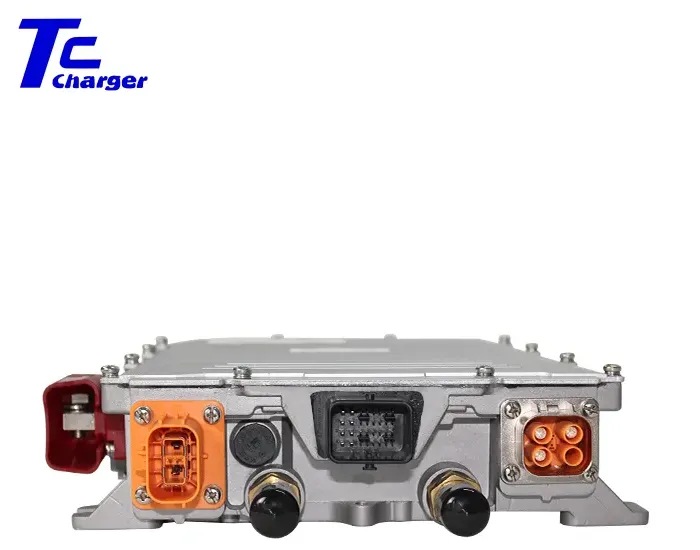Unveiling the Efficiency of On-Board Chargers: Empowering Sustainable Electric Mobility
Aug 14,2023 | TCcharger
As electric vehicles (EVs) continue to gain popularity, the efficiency of their charging systems becomes a critical factor in promoting sustainable mobility. At the heart of the EV charging process lies the on-board charger (OBC), a vital component responsible for converting AC power to DC power to recharge the vehicle's battery pack. In this blog, we delve into the concept of OBC efficiency, exploring its significance in driving the transition towards a greener and more efficient future for electric mobility.

**Understanding On-Board Charger Efficiency**
OBC efficiency refers to the ratio of the energy output delivered to the EV's battery compared to the energy input from the charging source. In other words, it measures how effectively the on-board charger converts electrical power from the grid or charging station into usable energy stored in the EV's battery. Efficiency is typically expressed as a percentage, with higher percentages indicating better energy conversion.
**Factors Influencing OBC Efficiency**
Several factors influence the efficiency of on-board chargers:
1. **Charging Power:** OBCs with higher charging power tend to have better efficiency. Higher power chargers can deliver more energy to the battery in a shorter time, reducing energy losses during the charging process.
2. **Charging Rate:** Efficiency can vary at different charging rates. OBCs may exhibit slightly lower efficiency when charging at lower or higher currents than their rated capacity.
3. **Temperature:** Temperature can impact the efficiency of OBCs. Some chargers incorporate thermal management systems to regulate temperature during charging, optimizing efficiency and prolonging the battery's life.
4. **Battery Chemistry:** Different battery chemistries have unique charging characteristics, and OBCs may be optimized for specific types, affecting their overall efficiency.
**Importance of High OBC Efficiency**
High OBC efficiency plays a crucial role in the growth and acceptance of electric vehicles for several reasons:
1. **Reduced Energy Waste:** Efficient on-board chargers minimize energy losses during the charging process, resulting in less energy waste and lower electricity consumption.
2. **Faster Charging Times:** An efficient OBC can charge the battery more rapidly, reducing charging times and enhancing the convenience of electric vehicle ownership.
3. **Extended Driving Range:** Improved efficiency means more energy is effectively stored in the battery, leading to a longer driving range for electric vehicles.
4. **Enhanced Sustainability:** By minimizing energy waste, high OBC efficiency aligns with the goal of sustainable transportation and reducing greenhouse gas emissions.
**Advancements in OBC Efficiency**
As technology progresses, so does the efficiency of on-board chargers. Manufacturers are continuously working to optimize charging algorithms, reduce power losses, and incorporate advanced cooling systems to achieve higher efficiency levels.
**Conclusion**
The efficiency of on-board chargers is a pivotal aspect of electric vehicle charging systems. As the EV industry advances, the quest for higher OBC efficiency remains an essential focus. By embracing energy-efficient on-board chargers, we accelerate the transition to cleaner and more sustainable electric mobility. As an EV driver or enthusiast, you play a part in driving this transformation by choosing vehicles equipped with high-efficiency on-board chargers. Together, let's pave the way for a future where electric vehicles are not only the smart choice but also the efficient choice for a greener and healthier planet.



